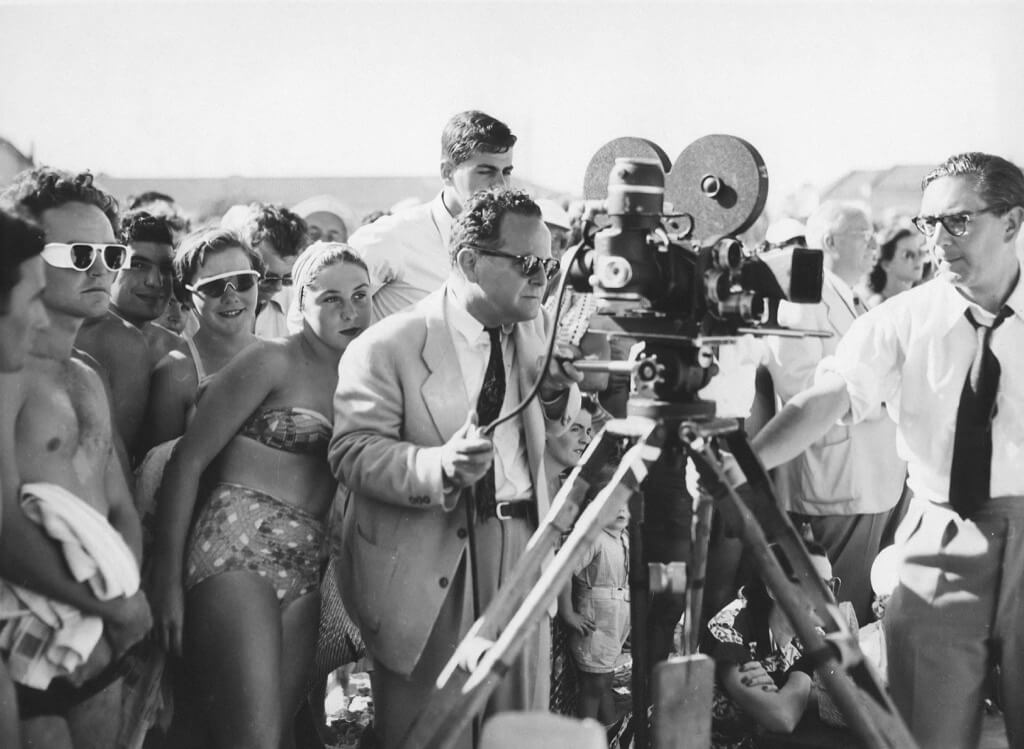The British Broadcasting Corporation (BBC), established in 1922, stands as a paragon of journalistic integrity, known for its impartiality and objectivity. This prestigious institution has earned the trust of audiences not just in the UK, but across the globe, including the US. However, our focus today isn’t on these well-earned accolades but on a journey through time – one that intertwines dinner jackets, Received Pronunciation, and the Nazis with the BBC News.
When Sir John Reith, a Scottish engineer with no prior broadcasting experience, became the first General Manager of the BBC, he infused the organization with a sense of formal Britishness. Reith’s vision was clear: the BBC was to embody the epitome of British decorum and authority. A noteworthy aspect of this vision was the emphasis on ‘Received Pronunciation’ (RP), also known as ‘BBC English.’ Reith championed RP – the King’s English – as a universally intelligible and respectable form of speech, essential for both national and international broadcasts.
Received Pronunciation, a term first defined in 1869 by linguist A.J. Ellis, was not just about articulating words as they appear in the dictionary. It was an attempt to transcend regional accents, albeit one that inadvertently became synonymous with Southern England and the upper echelons of society. Despite its aim to mask regional backgrounds, RP inadvertently broadcasted a speaker’s social and educational status. This led to a sense of alienation among many listeners, who felt disconnected from the ‘upper class’ accent that dominated the airwaves.
The outbreak of World War II marked a significant shift in the BBC’s approach. Wilfred Pickles, a broadcaster with a distinct Yorkshire accent, joined the BBC in 1941. His appointment marked the first deviation from the standard RP accent on the BBC Home Service. This change was not just about adding regional flavor; it was a strategic move. The Ministry of Information, concerned about Nazi propagandists trained in RP, sought to make it harder for them to impersonate BBC broadcasters. Additionally, the move echoed a broader wartime sentiment – a call for unity in diversity rather than adherence to a single, idealized accent or class.
The BBC’s evolution from rigid RP to a more inclusive approach to accents reflects a broader societal change. What started as a symbol of formal Britishness transformed into a platform embracing the country’s diverse voices. This transition was not just about accents; it was a statement on inclusivity, a recognition that public broadcasting should mirror the public it serves. Today, the BBC’s linguistic landscape is as varied as the society it represents, a testament to its adaptability and commitment to serving all corners of the nation.
The Shift in British Accents
Historically, English speakers in both England and its colonies used a rhotic accent, pronouncing the ‘R’ sound in words like ‘hard’ and ‘winter’. However, post-Revolutionary War, non-rhotic speech became a marker of social status in England, particularly among the upper and upper-middle classes. This change was part of a broader trend where accents were used to signify social standing.
The Germanic Origins of British Accents
The accents in Britain have roots in the 5th century when Germanic tribes settled in the region, each bringing distinct dialects. This historical development laid the foundation for the diverse range of accents across the British Isles. Over centuries, these accents evolved, influenced by social, political, and economic factors, leading to the rich tapestry of dialects we hear today.
BBC and the British Accent
The BBC, in its early years under the guidance of Sir John Reith, adopted Received Pronunciation (RP) – a non-rhotic accent associated with the upper class – as its standard. This decision was both a reflection of the social norms of the time and an attempt to present a unified, ‘proper’ British voice to the world. The choice of RP, while intended to be neutral and widely understandable, inadvertently highlighted class divisions.
World War II and Linguistic Strategy
During World War II, the BBC’s choice of accents took on a strategic dimension. With Nazi propagandists trained in RP to impersonate British broadcasters, the BBC introduced regional accents to its broadcasts. This move, while practical, also signaled a broader shift towards acknowledging and embracing Britain’s linguistic diversity. It was a step away from the elitist connotations of RP and towards a more inclusive representation of the British public.
In the future, institutions like the BBC will likely continue embracing linguistic diversity, reflecting a society that values inclusivity. For you, this means accessing news that resonates more closely with your regional identity and experiences. Diverse accents in broadcasting symbolize a shift towards a more inclusive media landscape, breaking down barriers once upheld by standards like Received Pronunciation.
The historical context of the BBC’s language policy, especially during WWII, offers valuable lessons for future media strategies. The tactical shift to regional accents to counter Nazi propaganda underscores the importance of adaptability and awareness in broadcasting. This adaptability will be crucial for you to receive news that’s not only informative but also secure and trustworthy in an era of increasing information warfare.
The role of accents as social status markers, as exemplified by the transition from rhotic to non-rhotic speech in Britain, is evolving. In the future, these traditional markers might become less pronounced as society continues to challenge class-based distinctions. This change can lead to a more egalitarian society, where you are less likely to be judged based on your accent but rather on your abilities and character.
Statistics on British Accents and Nazi Propaganda
- A national survey involving over 1,000 participants asked them to evaluate mock interview answers spoken in five different accents. This study highlights the varying perceptions and biases associated with different British accents.
- Only about 3% of the UK population speaks with an RP accent. This statistic underscores the limited use of what was once considered the ‘standard’ British accent, demonstrating the diversity of accents across the UK.
- The Nazis were known for their skilled use of sophisticated advertising techniques and the most current technology of the time to disseminate their propaganda. This approach played a crucial role in shaping public opinion and behavior during their regime.
- Adolf Hitler, upon rising to power, established the Ministry of Public Enlightenment and Propaganda. This ministry was instrumental in shaping German public opinion and behavior, indicating the level of importance the regime placed on propaganda.
- Nazi propaganda was integral in advancing the persecution and ultimately the destruction of Europe’s Jews. It played a critical role in inciting hatred and fostering a climate of indifference toward the fate of Jews during the Holocaust.
- Films were a significant medium for Nazi propaganda, disseminating racial antisemitism and portraying the superiority of German military power. Movies like “The Eternal Jew” (1940) and “The Triumph of the Will” (1935) were used to portray Jews as subhuman and glorify the Nazi movement, respectively.
The story of the BBC, from its Reithian beginnings to its modern incarnation, is a narrative of adaptation and responsiveness to societal needs. It reminds us that institutions, no matter how entrenched in tradition, can evolve.




